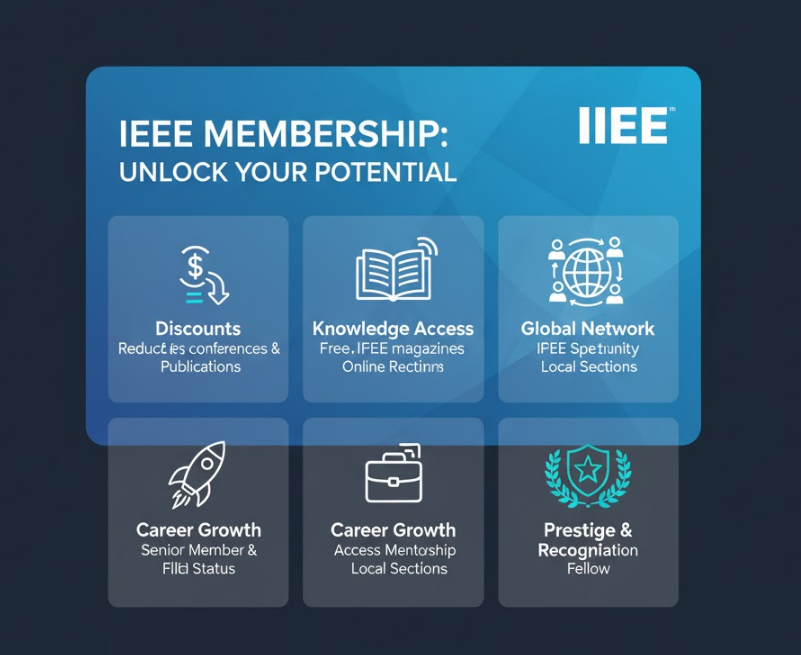

373 views||Release time: Oct 15, 2025
As a researcher or student, you will encounter a wide variety of academic events, each with a different name. While all are designed to foster learning and connection, a "conference" is not the same as a "workshop," and a "symposium" has a different goal than a "forum." Understanding these distinctions is key to choosing the right event to attend or present at.
This guide clarifies the key differences between these four common types of academic gatherings, focusing on their scale, scope, format, and primary purpose.

A conference is the largest and most formal of the four. It's the "main event" for a broad field of study.
What it is: A large-scale, multi-day event that covers a wide range of topics within a discipline (e.g., computer science, history, chemistry).
Key Characteristics:
Scale: Large, often with hundreds or thousands of attendees.
Scope: Broad, typically featuring multiple parallel sessions, tracks, and sub-topics.
Format: Formal presentations are the core activity. Researchers present their work through oral talks ("sessions") or visual displays ("poster sessions").
Primary Goal: Dissemination. The main purpose is for researchers to present their latest findings to a wide audience.
Analogy: A large music festival with multiple stages, each featuring different artists and genres.
A symposium is smaller and more focused than a conference. It brings together experts to discuss a specific theme.
What it is: A gathering of experts to present and discuss a single, well-defined topic (e.g., "AI in Medical Imaging" or "18th-Century British Literature").
Key Characteristics:
Scale: Smaller and more intimate than a conference.
Scope: Narrow and highly specialized.
Format: Expert-driven. It often consists of a series of presentations by leading researchers on the chosen theme, frequently followed by a panel discussion. Audience interaction is usually reserved for Q&A sessions.
Primary Goal: In-depth discussion. The aim is to explore a specific topic from multiple expert perspectives.
Analogy: A one-day concert dedicated to a single genre, like classical music, featuring a lineup of renowned maestros.
A workshop is the most interactive and hands-on of the events. The focus is on doing, not just listening.
What it is: A practical, intensive session designed for a small group to learn a new skill, solve a problem, or receive training.
Key Characteristics:
Scale: Small, to allow for individual participation and collaboration.
Scope: Very narrow and specific (e.g., "A Hands-on Introduction to Data Visualization in Python" or "How to Write a Grant Proposal").
Format: Highly interactive. It involves activities, exercises, and group work.
Primary Goal: Training and skill-building. The main outcome is that participants leave with a new skill or having collaboratively worked on a specific problem.
Analogy: A guitar masterclass held at the music festival. You don't just listen; you actively participate and learn a new technique.
A forum is a discussion-oriented event where the primary goal is the exchange of ideas among all participants.
What it is: An open venue for public discussion on a specific issue or topic, where audience participation is a key feature.
Key Characteristics:
Scale: Can be large or small.
Scope: Usually focused on a single topic, but from diverse viewpoints.
Format: Discussion-based. It often features a panel of speakers who give short opening remarks, but the majority of the time is dedicated to a moderated public Q&A and open debate.
Primary Goal: Open dialogue and community engagement. The aim is to hear and discuss a wide range of opinions.
Analogy: An open-mic night or a large town hall meeting where audience members are encouraged to come to the microphone and share their views.
| Feature | Conference | Symposium | Workshop | Forum |
| Primary Goal | Disseminate Research | In-depth Discussion | Skill-Building | Open Dialogue |
| Scale | Large (100s-1000s) | Medium | Small | Variable |
| Scope | Broad (Many Topics) | Narrow (Single Topic) | Very Narrow (Single Skill) | Topic-focused |
| Format | Formal Presentations | Expert Presentations | Hands-on, Interactive | Discussion, Q&A |
| Audience Role | Mostly Listeners | Listeners / Q&A | Active Participants | Active Participants |
Conclusion
While the lines can sometimes blur—with a workshop being part of a larger conference, for example—the core differences lie in scale, scope, and the level of audience interaction. A conference is for broadcasting new knowledge, a symposium is for deep expert discussion, a workshop is for active learning, and a forum is for open community debate. Always read the event description to understand its true purpose and format.